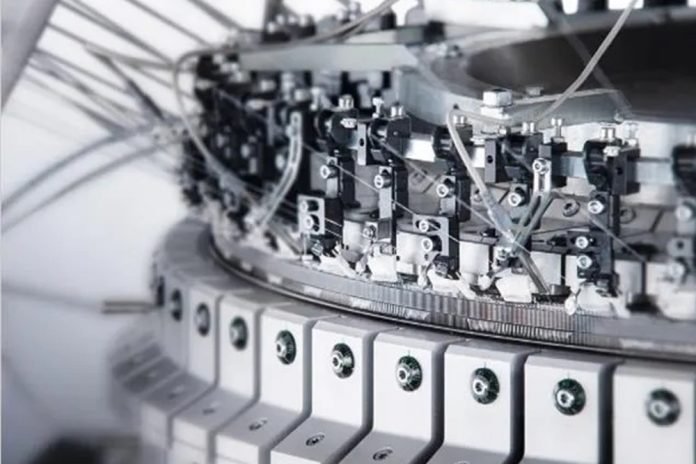In the field of melt spinning, the DITF are working on several pioneering research areas, for example the development of various fibers for medical implants or fibers made from polylactide, a sustainable bio-based polyester.
The German Institute for Textile and Fiber Research Denkendorf (DITF) is a research institute located in Denkendorf, Germany. It focuses on applied research in the field of textiles, fibers, and textile-based high-performance materials. DITF collaborates with industry partners and academic institutions to develop innovative solutions for the textile industry. The institute’s research areas include textile chemistry, textile technology, fiber composites, and smart textiles. DITF is known for its contributions to the development of sustainable textile production processes and materials.
The modernized and expanded melt spinning pilot plant at the DITF aims to pioneer in fiber functionalization and the development of sustainable fibers derived from biodegradable and bio-based polymers. The research also focuses on the invention of flame-retardant polyamides, their conversion into fibers for carpet and automotive applications, as well as the creation of carbon fibers from melt-spun precursors.
Other innovative areas include the discovery of a bio-based alternative to petroleum-based polyethylene terephthalate (PET) fibers into polyethylene furanoate (PEF) fibers. Notably, the role of bicomponent spinning technology is becoming important as it enables the production of fibers from 2 different components.
Technical textiles, developed from polymers like polyamide (PA) and various others since the last 85 years, have innovated the industry by offering a multitude of functions. Fibers produced from these materials can be electrically conductive or luminescent depending on their exact composition. Other additional qualities include antimicrobial properties and flame-retardance. Such fibers find wide application in various facets such as lightweight construction, medical applications, or insulation in buildings.
To align with environment and resources protection, DITF’s research also focuses on increasing the use of bio-based fibers in the future. Emphasis is being put on simple-to-recycle fibers and systematic recycling methods for maintaining high-quality fiber production.
In January, the DITF also commissioned a bicomponent spinning plant from Oerlikon Neumag, Neumünster/Germany, on an industrial scale. Incorporated with a unique feature of BCF process (bulk continuous filaments), it allows special bundling, bulking and processing of the fibers. The system appropriately supplements a so-called spinline rheometer for data recording online and inline measurement, which directly influences the enhanced understanding of fiber formation.
Furthermore, a newly introduced compounder will be applied in the development of functionalized polymers along with the energy-efficient thermomechanical recycling of textile waste. This upgraded melt spinning pilot plant characterizes an unparalleled, state-of-the-art environment to propagate the development and application of new materials and man-made fibers.



